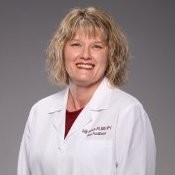
Kelly Jackson, a nurse practitioner with Georgia Gynecologic Oncology, wants people to know that cancer prevention starts with everyday choices.
“My goal is to educate adults on practical prevention strategies,” she said. “Prevention is always better than cure, and empowering yourself with knowledge and routine care is important.”
Why prevention matters
According to Jackson, about 40% of cancers in the United States are preventable. The most common types include breast, lung, colorectal, prostate and skin cancers.
“These are the negative impacts on our lives, which can increase the risk of developing cancer,” she said, citing smoking, poor diet, inactivity, alcohol consumption, sun exposure and certain infections.
Lifestyle and environmental risks
“Tobacco is the leading preventable cause of cancer,” Jackson emphasized.
Smoking is responsible for about 85% of lung cancer cases and nearly one-third of U.S. cancer deaths. She also warned about secondhand smoke and environmental risks like radon exposure.
A healthy diet, she added, plays a major role in prevention.
“Our bodies need a variety of colorful foods to ensure we are getting all of the nutrients we need to maintain a healthy immune system,” she said.
High-fiber foods, fruits, vegetables, and lean proteins such as fish and poultry offer protection, while processed meats, sugary drinks and fried foods increase risk.
Obesity is another significant factor.
“Obesity can be linked to 13 or more types of cancer,” Jackson said.
Carrying excess weight raises hormone levels and inflammation, weakens the immune system, and fuels tumor growth.
Movement, alcohol and sun safety
Physical activity helps reduce cancer risk.
“It’s important to obtain at least 150 minutes of moderate or 75 minutes of vigorous activity per week,” Jackson said.
Activities such as brisk walking, swimming, or dancing can lower the risk of colon, breast and endometrial cancers.
Alcohol, even in small amounts, has been linked to cancers of the breast, liver, esophagus and colon.
“Alcohol metabolism produces acetaldehyde, a toxic compound that can damage DNA and increase the risk of mutations,” Jackson explained.
When it comes to sun safety, she recommended daily sunscreen use, protective clothing and avoiding tanning beds.
“Even one blistering sunburn before the age of 35 increases the risk of melanoma by 75%,” she said.
Screening and vaccination
Screenings help catch cancer early, when treatment is most effective.
“Early detection can increase the chances of successful treatment and better outcomes,” Jackson said.
Mammograms, colonoscopies, Pap smears, HPV tests, PSA blood tests and low-dose CT scans are common screening tools.
Vaccinations are also powerful prevention tools.
“HPV vaccination can prevent cervical cancer, throat cancer and some other cancers,” she said. The hepatitis B vaccine reduces the risk of liver cancer.
Small steps, big difference
Jackson encouraged people to take manageable steps: swap fries for a salad, drink water instead of soda, quit smoking, and stay up to date on screenings.
“Small, consistent actions do matter in your quest for cancer prevention,” she said.
Discover cancer screenings offered by Northside Hospital Cancer Institute.

